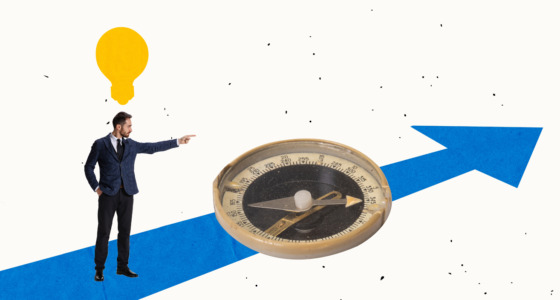

You can watch all of the videos on YouTube, read blog posts galore and yet still find it hard to be consistent in your trading results. Well, help is at hand! In this article, we’ll go through the basic, repeatable steps that successful traders use for consistent results.
Before being consistent and successful, it will be extremely helpful to know what your trading personality is. For example, if you like to over-analyse, it’s actually often better to do your best then roll with it. If you’re 60% confident in your trader personality, you’ll get much further than trying to figure it out 100% and then not getting started at all.
After hashing out your trading profile, you’ll be in a much better position to start your set trading plan. With this in mind, let’s take a look at our 7 tips on how to get more consistent.
#1: Create a plan
Lots of traders end up failing because even though they know their trading profile, they quickly jump on the next YouTube bandwagon trading strategy.
For instance, their personality might dictate that they’re most likely to do well with swing trading but then they see a new strategy on day trading and decide to create their own day trading plan. Big mistake!
If a trading strategy doesn’t match a trader’s lifestyle and temperament, they probably won’t do well at it.
The key secret to having more consistent trading results is to find a strategy that will match your trading personality. When you’ve found one, you’ll simply follow a process to master it.
#2: Test your plan
If it’s possible, you should try and test your trading strategy. There are lots of different software programs that allow traders to backtest their strategies. It’s also possible to do automated testing or manual testing. Some good tools include Metatrader 4 and 5 and Visual Strategy Builder.
#3 Review the results from your backtesting
When you’ve backtested your strategy and have a data set, it is useful to share it with another trader or two to discuss. Ask yourself if the backtesting aligns with your trading goals. If they don’t, you should tweak your plan before testing again. You should continue this process until the results are what you want.
Just like professional athletes who spend the majority of their time training rather than competing, so should forex traders.
When you find something that is workable, it’s time to Forward Test.

#4: Forward testing
With your chosen strategy sorted, it’s now time to test it in a real market. You can either do this in a demo account or in a small nano lot of $1,000 or less.
Even if you’re really happy with your strategy, you shouldn’t yet trade with your full amounts as you could be setting yourself up to fail.
There will still be some small kinks to work through in your strategy at this point. Working through them with a demo or small amount is important so that you don’t lose a lot of money.
#5: Review your results
You need to look at your backtesting and compare it with your forward testing. In your analysis, look for the days and times you entered your trades. Are they the same? You need to see if there are tweaks to be made to your strategy after analysing these together.
Once you’ve established that your forward testing has been successful, you can then step up and out into the real trading world.
#6: Start a live trade
After reviewing your results, you’re now ready to trade the strategy full-size. However, you’ll still need to know if there are issues preventing consistent trading results. This is because trading in a full-size trading account can mean extra pressure and higher emotions, which can affect how you decide to trade.
If you notice your results aren’t the same as in your testing, you need to try and figure out why. Look at your strategy and see if you’re trading in the same way that you did during your back and forward testing. It might simply be your own mind stopping you from trading in a consistently profitable way.
#7: Add your trading strategy to your trading toolkit
When you’ve found a trading strategy that works consistently for you, congratulations! This means you can add it officially to your forex trading toolkit. If this works, and you’re happy to continue using it, that’s fine. But you could also now work on developing a second strategy too!
Final thoughts on getting more consistent trading results
Remember what we said earlier, elite athletes spend the majority of their year training and have very few competitions. Think of forex trading in a similar way. To summarise, here are our 7 tips as discussed in this article:
- Create a plan
- Test your plan
- Review the results
- Forward test
- Review the results
- Live trade
- When you know it works, add the strategy to your trading toolkit.
If you look at the list above, you’ll see that live trade doesn’t happen until step six. It can be tempting to go straight in and live trade your idea but following these steps will lead to trading that is much more consistent.









